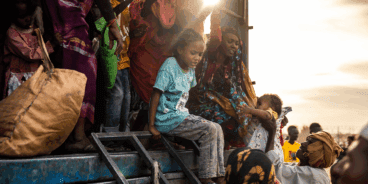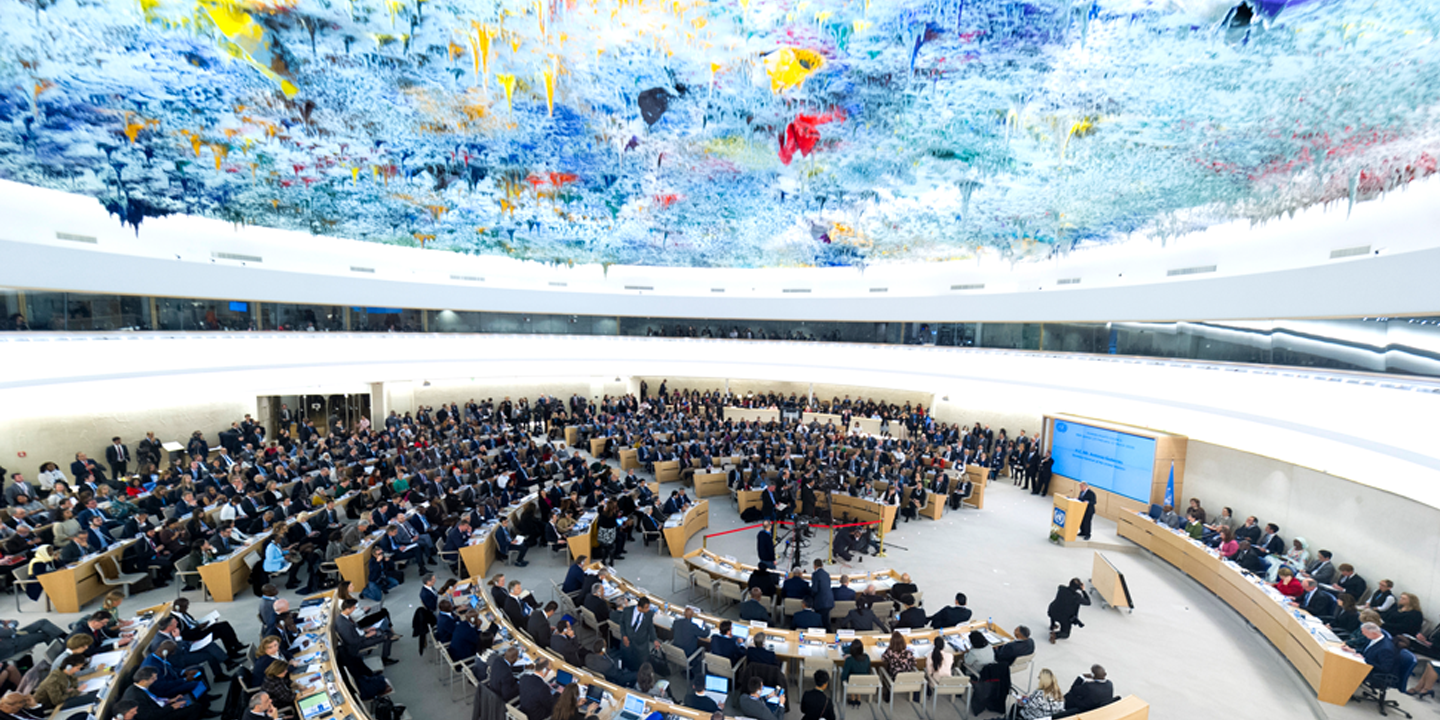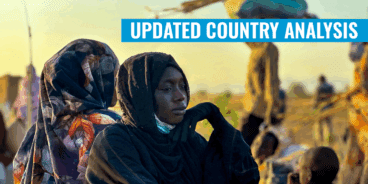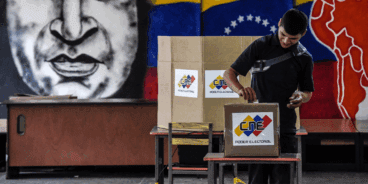

HRC49: Extend the mandate of the UN Commission on Human Rights in South Sudan
To Permanent Representatives of Member and Observer States of the United Nations (UN) Human Rights Council
Excellencies,
We, the undersigned non-governmental organisations, write to urge your delegation to support the extension of the full mandate of the UN Commission on Human Rights in South Sudan (hereafter “Commission” or “CHRSS”) at the upcoming UN Human Rights Council’s (“HRC” or “Council”) 49th session (28 February-1 April 2022).
The CHRSS is the only mechanism tasked with collecting and preserving evidence of violations of international humanitarian and human rights law with a view to ensuring accountability and addressing human rights and transitional justice issues in South Sudan from a holistic perspective. Its work remains vital as the country prepares for elections in 2023, violence remains pervasive, and South Sudanese civil society faces intensifying repression.
In 2021, the Council adopted two resolutions focused on South Sudan. For the first time, the resolution extending the mandate of the CHRSS was not consensual. At the request of the South Sudanese Government, a vote took place. On the same day, a second resolution, focused on technical assistance and capacity-building, was adopted. While this disappointing outcome, which results in the holding of twice as many debates at the Council’s 48th and 49th sessions, should not be considered a precedent, we stress that any merger in 2022 should not happen at the expense of a strong investigative mandate.
Victims should have the opportunity for justice for international crimes committed. The continuation of the CHRSS’s mandate is the best means to safeguard future accountability in the absence of contemporary criminal prosecutions and at least until the Hybrid Court for South Sudan (HCSS) is functional.
With resolution 46/23, the Council reaffirmed the importance of the mandate of the CHRSS and acknowledged that “demonstrable progress in key human rights issues of concern is critical to any future change to the mandate of the [CHRSS].” Unfortunately, progress on key human rights issues of concern has not been reported by the CHRSS, the Office of the UN High Commissioner for Human Rights (OHCHR), or other independent actors, including in the framework of the second track, in relation to resolution 46/29.
Our organisations have continued to monitor the situation with concern, as authorities embarked on a new wave of repression against peaceful protesters, continued harassing civil society actors, and carried out at least 52 extrajudicial executions. Social and economic rights are in a dire state and embezzlement of public funds fuels violations of these rights. Impunity and high levels of violence persist, including a five month-long attack by armed groups against civilians in Western Equatoria state that killed dozens and displaced tens of thousands.
When they signed the 2015 Peace Agreement, and more recently the 2018 Revitalised Peace Agreement for Resolution of the Conflict in the Republic of South Sudan (R-ARCSS), parties committed to ensuring justice for crimes under international law and human rights violations and abuses. The African Union and the Intergovernmental Authority on Development (IGAD) supported this approach. African human rights bodies have also called on parties to implement Chapter V of the Agreement, in which the parties committed to establishing a hybrid court, a truth commission, and a compensation and reparation authority. Despite obligations and numerous commitments and promises by the parties, none of the mechanisms has been established.
* * *
This is not the time to change the Council’s approach, or to relax its scrutiny. The mandate of the CHRSS remains critical and should continue until such a point as demonstrable progress has been made against human rights benchmarks and accountability, and based on an assessment of risk factors of further violations. In this regard, the Framework of Analysis for Atrocity Crimes, with its risk factors, is a key tool.
The Council should empower the Commission to continue its work under all aspects of its mandate: investigation, collection and preservation of evidence, monitoring, reporting, technical cooperation, and advice on transitional justice. Until the Hybrid Court for South Sudan is fully operational and functional, the Council should ensure the renewal of the mandate of the CHRSS to secure the collection and preservation of evidence of serious crimes committed since 2013, on behalf of victims and with a view to transferring such documentation to independent and competent judicial authorities in the future.
Any technical assistance or capacity building requested by South Sudan can be, and already is, offered as part of the annual resolution extending the CHRSS’s mandate. However, a purely technical assistance and capacity-building focus, as proposed in resolution 46/29 of 2021, would be unsuitable to tackle South Sudan’s many and serious human rights challenges and would risk further emboldening those who perpetrate the most serious crimes.
In this context, we reiterate previous civil society recommendations and urge the Council to continue its meaningful action on South Sudan by extending the CHRSS’s mandate in full for a further year.
We thank you for your attention to these pressing issues.
Sincerely,
- Action 54, South Sudan
- Action for Community Education and Development (ACEDO South Sudan)
- African Centre for Democracy and Human Rights Studies (ACDHRS)
- African Child Care Network (ACCN)
- AfricanDefenders (Pan-African Human Rights Defenders Network)
- Amnesty International
- Anika Women Association (AWA) – South Sudan
- Asian Forum for Human Rights and Development (FORUM-ASIA)
- Assistance Mission for Africa (AMA)
- Burkinabè Human Rights Defenders Coalition (CBDDH)
- Burkinabè Women Human Rights Defenders Network (RB-FDDH)
- Burundian Coalition of Human Rights Defenders (CBDDH)
- Cairo Institute for Human Rights Studies (CIHRS)
- Center for Inclusive Governance Peace and Justice (CGPJ) – South Sudan
- Center for Peace and Advocacy (CPA) – South Sudan
- Center for Reproductive Rights
- Central Africa Human Rights Defenders Network (REDHAC)
- Centre for Human Rights and Democracy (CHRD) – South Sudan
- Centre for Human Rights and Democracy in Africa (CHRDA) – Cameroon
- CIVICUS: World Alliance for Citizen Participation
- Coalition béninoise des défenseurs des droits humains (CDDH-Bénin)
- Committee for Justice (CFJ)
- Community Empowerment for Progress Organization (CEPO) – South Sudan
- Community Empowerment for Rehabilitation and Development (CEFoRD) – South Sudan
- Community Initiative for Partnership and Development (CIPAD)
- Community Initiative Support Program (CISP) – South Sudan
- Community Organization for Peer Educators (COPE) – South Sudan
- DefendDefenders (East and Horn of Africa Human Rights Defenders Project)
- FIDH (International Federation for Human Rights)
- Forum pour le Renforcement de la Société Civile (FORSC) – Burundi
- Geneva for Human Rights / Genève pour les Droits de l’Homme
- Global Centre for the Responsibility to Protect (GCR2P)
- Human Rights Defenders Network – Sierra Leone
- Human Rights Defenders Solidarity Network Uganda
- Humanitarian Development Organization (HDO) – South Sudan
- Human Rights House Foundation
- Human Rights Watch
- International Bar Association’s Human Rights Institute (IBAHRI)
- International Commission of Jurists
- International Movement Against All Forms of Discrimination and Racism (IMADR)
- International Service for Human Rights
- Islamic Development and Relief Agency (IDRA) – South Sudan
- Itkwa Women Empowerment Organization (IWEO) – South Sudan
- Ivorian Human Rights Defenders Coalition (CIDDH)
- Joint Border Peace Development Agency (JBPDA) – South Sudan
- Lawyers’ Rights Watch Canada
- Ma’Mara Sakit Village
- Men Engage Gender Equality Network (MEGEN) – South Sudan
- National Press Club South Sudan (NPC-SS)
- Nigerien Human Rights Defenders Networks (RNDDH/NHRDN)
- Nile Initiative for Development (NID)
- Nile Sisters Development Initiative Organization (NSDIO)
- Pan African Peacemakers Alliance (PAPA)
- People’s Demands Organization (PEDO) – South Sudan
- Protection International Africa
- Réseau des Citoyens Probes (RCP) – Burundi
- Réseau de solidarité des défenseurs des droits humains – DRC
- Rights for Peace
- Rural and Urban Development Agency (RUDA) – South Sudan
- Safe Orphans Charity Organizations (SOCO) – South Sudan
- Southern Africa Human Rights Defenders Network (Southern Defenders)
- South Sudan Action Network on Small Arms (SSANSA)
- South Sudan Human Rights Defenders Network (SSHRDN)
- South Sudan Women Empowerment Network (SSWEN)
- SOWETO Community Based Organization
- Support Peace Initiative Development Organization (SPIDO) – South Sudan
- The Advocates for Human Rights and Democracy (TAHURID)
- The Sentry
- Union of Journalists of South Sudan (UJOSS)
- Voices in Advocacy for Development – Uganda
- War Widow and Orphans Association (WWOA) – South Sudan
- West African Human Rights Defenders Network (ROADDH/WAHRDN)
- Wider Aid and Development Agency (WADA) – South Sudan
- Women Action for and with Society (WAS) – South Sudan
- Women Empowerment Entrepreneurship Coaching (WEEC) – South Sudan
- Women Training and Promotion (WOTAP) – South Sudan
- World Organisation Against Torture (OMCT)
- Yei Women Peace Forum
- Youth Forum for Social Justice – Uganda
- Youth Vision South Sudan (YVSS)
Annex: Developments since March 2021
More than three years since the signing of the R-ARCSS, South Sudan continues to face major human rights, humanitarian, security, governance, impunity, and economic issues. As the CHRSS highlighted on the tenth anniversary of the country’s independence, “[f]or ordinary civilians, much of the past decade has been marked by brutally violent conflict and on-going human rights violations.”
Fighting continues in parts of the country, including with opposition groups who refuse to sign the R-ARCSS, in Yei and in other parts of the Equatorias. Nine of the country’s ten states remain engulfed in violence. In Tambura, parts of Warrap, and Jonglei/Greater Pibor, politically instigated and supported violence between community-based militias and youth groups threaten people’s safety, human rights, and livelihoods. The violence is fuelled by disputes over land and livelihoods, grievances over past atrocities, arms trafficking, displacement, and governance-related issues, which constitute significant risk factors of human rights and humanitarian law violations. In the Commission’s words, “considerable work remains to be done to ensure that South Sudan does not slide back into violent national conflict.”Last September, the UN High Commissioner for Human Rights also expressed her deep concern over “high levels of violence attributed to community-based militias.”
Conflict has been accompanied by grave violations and abuses, which continue to take place with impunity. These include sexual violence, which remains widespread despite the launch of an Action Plan for the Armed Forces on addressing conflict-related sexual violence, on 19 June 2021. Conflict-related violations include deliberate starvation of civilians, recruitment and use of children in armed conflict, and attacks on civilian infrastructure, which may amount to crimes under international law.
In 2021, dozens of abductions and enforced disappearances, as well as a wave of extrajudicial executions, have also been reported. CHRSS members have highlighted a “near total absence of the rule of law” in relation to these incidents.
Impunity for human rights violations and abuses and violations of international humanitarian law, perpetrated since the start of the conflict, in December 2013, in particular at more senior levels of responsibility, remains the norm.
The humanitarian situation, including displacement, denial of humanitarian access, and attacks against humanitarian personnel, remains of grave concern. Over 80 per cent of the population lives in extreme poverty. Eight million South Sudanese are currently dependent on aid. Over half the population is food insecure, of which one third are severely food insecure. Corruption, embezzlement, bribery, and misappropriation of public funds fuel violations of economic, social and cultural rights, as the State is unable to fulfil even minimum essential levels of these rights. Illicit gains from economic crimes are also a driver of armed conflict.
Key elements of the R-ARCSS remain unimplemented. The transitional justice institutions envisioned in Chapter V of the Agreement are yet to be established, despite promises and the parties’ obligations to operationalise the Commission for Truth, Reconciliation and Healing (CTRH), the Compensation and Reparation Authority (CRA), and the HCSS. The overwhelming majority of perpetrators of crimes under international law have faced no consequences for their actions. Over three years after the signature of the R-ARCSS and almost seven years after the signature of the initial peace agreement, lack of investment in, and reform of, the justice system and lack of leadership in establishing justice institutions can only be interpreted as deliberate and indicative of a lack of political will to ensure truth, justice, and reparations. This further entrenches impunity and emboldens violations and abuses.
The few positive developments of the last period (South Sudan’s first ever treaty body review, the continued work of the CHRSS despite the March 2021 non-consensual outcome, and the formal establishment of a specialised court for sexual and gender-based violence) are overshadowed by the lack of progress on improving the country’s human rights situation, including an intensifying crackdown on civic space and civil society actors.
After authorities prevented the holding of country-wide peaceful protests against the country’s leadership and arrested religious figures, civil society actors, and real and perceived members of the People’s Coalition for Civil Action (PCCA), a civic coalition, in August 2021, the High Commissioner regretted “restrictions […] on civic space and people’s rights to express their views and opinions” and “strongly encourage[d] the Government to open up civic space and to refrain from restricting [fundamental rights and freedoms].”
National Security Service (NSS) officials deliberately target civil society. The threats, harassment and intimidation of human rights defenders, journalists and other civil society actors include threats to their lives and harassment of their colleagues and family members, as well as arbitrary detentions and raiding of premises.
There is fear that violations against independent and critical voices will increase in the pre-election period. General elections, which were to take place in 2022 as per the R-ARCSS, are planned for 2023.
Related Content


Populations at Risk, November 2025
